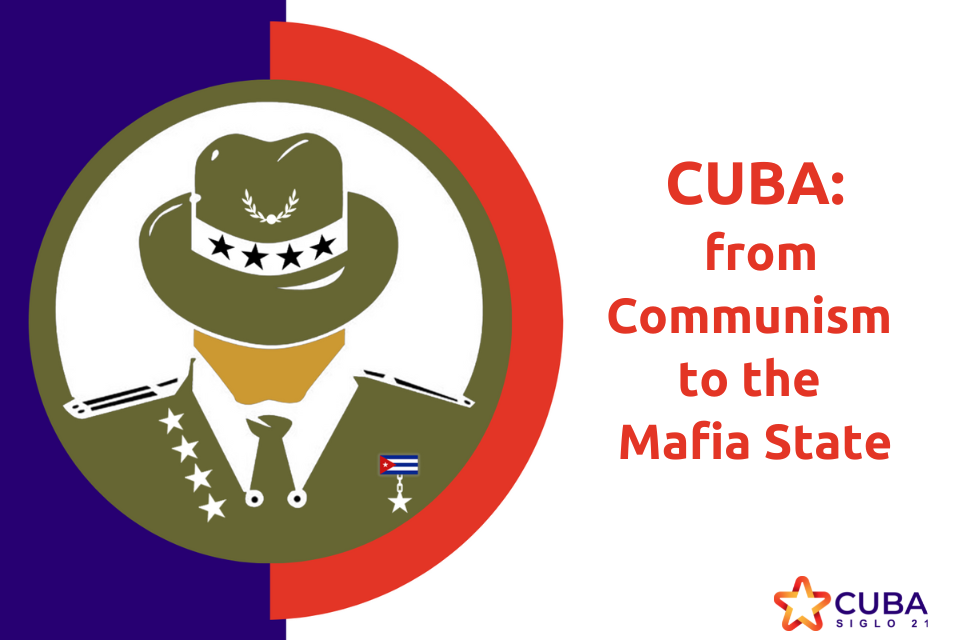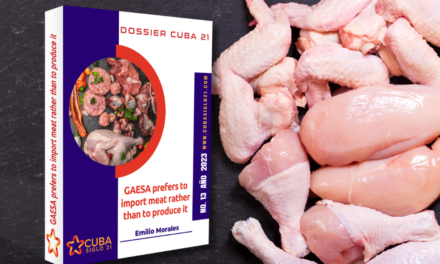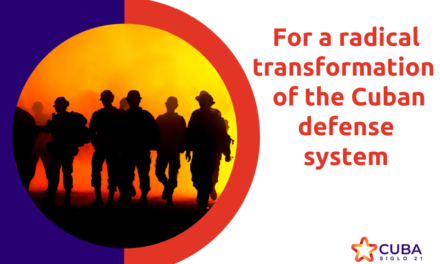The changes in the political economy of Cuban society in the last fifteen years are equivalent to the transformation of the previous model of Cuban communism into a mafia state, as defined by contemporary social sciences, whose peculiar governance regime differs from other mafia states in that it continues to maintain totalitarian control over both the political and economic systems.
It is not a matter of labeling them as mafiosi to add another epithet to the totalitarian or criminal ones. There is a new phenomenon at work. Mafia states are not exclusively those countries where organized crime takes advantage of the fragility of the state to infiltrate it, control important officials, hegemonize certain economic activities and even dominate certain areas and territories by means of parallel armies. These are countries in which a kleptocratic and autocratic elite exercises real power exclusively and promotes its particular interests above all national interests, after having subjected the armed and judicial institutions to unconditional obedience, having appropriated the profits from the country’s most lucrative economic activities and controlling the decision-making processes in the institutions of government, which, once emptied of real power, becomes an instrument of that oligarchy to validate its decisions. Mexico and Italy -despite their levels of criminal infiltration and even the loss of effective state control over certain areas- are not mafia states, but Venezuela and Russia are.
After a decade and a half of totalitarian performance, the new mafia oligarchy has left as an inheritance, at the end of 2022: a failed and collapsed governance regime. On the other hand, the State that is in charge of implementing this regime, system, or model of governance is fragile; it consists of institutions lacking in human and financial resources, is affected by a generalized anomie, and is managed by the most professionally mediocre government team that has held this responsibility since 1959. The result is the increase of ungovernability indexes in sensitive areas for national stability.
The power elite that controls the country through the oligopoly known as GAESA has established links with other states and non-state actors linked to organized crime and terrorism. Cuba today supports Russia’s aggression against Ukraine in the field of information and diplomatic warfare; this is not because aggressive US policy has alienated it. President Obama had already personally reached out to the Cuban government when he visited Havana.
But after that visit, with the resources provided by that opportunity not only from the US but also from the European Union and its creditors, Raul Castro expanded the GAESA oligopoly, asphyxiated the fledgling entrepreneurial sector, and Cuban intelligence launched a hybrid offensive with radical groups and organized crime to destabilize democratic governments in several South American countries. Their current alignment with Russia is not because they are both communist or anti-capitalist. Neither is one nor the other.
Havana’s current submission to Moscow is due to the fact that the new ruling class is a kleptocratic and autocratic oligarchy that controls the country’s greatest wealth for its own benefit. Just as Putin cannot tolerate the former colonies of the USSR influencing the Russian population if they develop successful economic models in the framework of democratic societies –in the case of Ukraine he stirred up the alleged fear that NATO was approaching its borders to eradicate that possible influence– neither is it the fear of a US aggression that paralyzes the Cuban elite. It is not fear of an improbable invasion by the Marines, but the degree of ideological influence that democracy and free enterprise would have on the population if Cuban society were to open up to the world. This time it is more afraid of the DEA agents’ investigations of its armed forces and GAESA, the mainstays of the new mafia state, than of investigations from the CIA. If the current Biden Administration ignores these realities, it will be condemned to repeat the same mistakes as Obama’s. The latter’s policy had some justification at the time as an exceptional experiment, but if it were to be repeated now it would be an inexplicable and crass mistake, with very harmful consequences for the Cuban people’s aspirations of freedom and progress.
MAFIA STATE
A mafia state is one where real power is shifted from state institutions and government officials to a kleptocratic and autocratic oligarchy that exercises its power to appropriate the sources of wealth, dictate the general course of the nation, privilege its interests over those of the population, and protect its privileged position by controlling both armed and judicial institutions.
These mafia oligarchies are not communist or anti-capitalist, but anti-democratic and anti-liberal, and therefore tend to create international alliances involving other mafia states, sectors of international organized crime, and a variety of civil society actors whose radical objectives coincide with the destabilizing agenda of this motley coalition of forces.
Download complete Dossier No 1 “Cuba: from Communism to the Mafia State”







